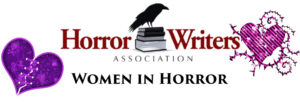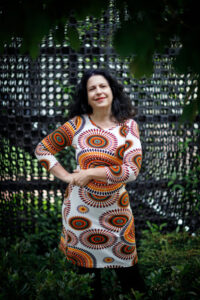Women in Horror: Interview with Kaaron Warren


Shirley Jackson award-winner Kaaron Warren has published five novels and seven short story collections. She’s sold over 200 short stories to publications big and small around the world and has appeared in Ellen Datlow’s Year’s Best anthologies. Her novel The Grief Hole won all three Australian genre awards. She has lived in Melbourne, Sydney, Fiji and Canberra and her most recent novella is Bitters, from Cemetery Dance. She won the inaugural AsylumFest Ghost Story Telling Competition in 2022.
What inspired you to start writing?
I loved words from the moment I could read them. Any group of words formed stories in my head and on paper. A set of spelling words turned into a crime story, or a ghost story. Reading the dictionary had me scribbling notes of ideas, some of which I still have. So I write because stories present themselves to me, and I’m ever grateful.
What was it about the horror genre that drew you to it?
I didn’t know it was a genre for a long time! I just knew I loved the stories that scared me and surprised me, the ones full of ghosts and monsters, and evil acts punished and unpunished. I loved stories that didn’t end happily, and some of my early fiction re-imagined endings to make them less predictable.
When I started seriously writing my own stories at around 14, I often used my nightmares as source material. They were a way to tap into that deep level of fear without really experiencing it, and of working through my own trauma, anxiety, true life fears and more.
A dream of a ruined underground city became “Down to the Silver Spirits”. A home invasion became “White Bed”. And recently, a giant metal man became Bitters.
Do you make a conscious effort to include female characters and themes in your writing and if so, what do you want to portray?
It isn’t deliberate. It depends on the story I’m telling; sometimes a male character needs to be at the centre. I do mostly feature women, though, because those are the stories that present themselves. While I don’t want women to only appear as victims, I want an honesty about what happens in this world. Awful things happen to good women and that’s how it is. Pretending it isn’t doesn’t help anyone. Facing it head one, and perhaps trying to understand it, is a possible way to fight it.
In Bitters, my novella for Cemetery Dance, women are victims, wives, mothers. Men carry the story, as well as the weight of the world. This was the right choice in a story about a city dominated by an enormous metal man; of course men would dominate.
What has writing horror taught you about the world and yourself?
I love this question! It’s very insightful into the writing process and to me, lies at the heart of why I write horror. Horror writers face the terror and pull it apart. To do this, we have to dive into the deep end, and face up to our own monsters at the bottom of the pool.
About the world, I’ve learned so much and continue to learn. One thing is this; people don’t make sense. They behave irrationally, they keep secrets, they present a face to the world while keeping themselves private.
What I’ve learned about myself is also in the multitudes. I try hard in my stories to keep myself off the page, and while doing that I need to know what I would do, the choices I’d make, and this isn’t always comfortable thinking.
How have you seen the horror genre change over the years? And how do you think it will continue to evolve?
I was obsessed with the Pan Horror anthologies as a younger writer, and I still love those books. They are a perfect way to see changes in horror, when you compare them to anthologies of today. While victimhood still exists, I think it is written about with a sense of purpose, in good horror, so that the violence doesn’t just happen for effect, but to make a point about the violence itself. This is just one difference. The concept of the monster has changed and will do so going forward. We no longer use those outside the so-called normal parameters; in fact those parameters have thankfully and for the most part changed beyond recognition.
Every new writer publishing brings a new perspective, which bolsters the entire industry.
Who are some women who write horror you recommend our audience check out?
Kirstyn McDermott, JS Breukelaar, Sarah Read, Livia Llewellyn, Kathe Koja.
What is one piece of advice you would give horror authors today?
Write the story you love, not the one you think you should write. Even when you are writing for a themed anthology, bring your own voice to it.
And to the women who write horror out there who are just getting started, what advice would you give them?
Don’t let the bastards get you down. Keep writing, keep submitting stories, and take advantage of as many opportunities that come your way as you can.



